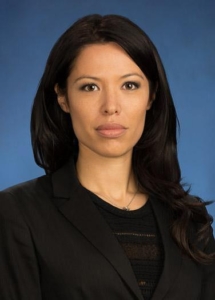Surely someone more experienced or more knowledgeable should be in this position instead of me.
These feelings of inadequacy and self-doubt – which some of us have experienced throughout our career –can be harmless. However, if they present themselves frequently, leading us to frequently doubt our abilities, they can have a detrimental impact on our careers.
This phenomenon of feeling undeserving of our accomplishments despite evidence to suggest otherwise, was first coined as the Imposter Syndrome by Dr. Pauline Clance and Dr. Suzanne Imes in 1978. After studying 150 highly successful women, they found that although the women were high achievers in their various fields, they struggled to internalise their successes – pointing more to other factors such as luck, or support from others, as opposed to their own knowledge and skills. Now, over 30 years later, the imposter syndrome is still a concept widely used to explain –at least in part –the lack of female business leaders.
According to Ann Harriman, both women and men tend to define their successes or failures using four “attributional causes”: ability, effort, luck, and task difficulty. The first two attributes, ability and effort, are categorized as being stable and internal. Thus, successes attributed to these causes will likely be repeated because they result from internal capabilities. However, when someone attributes their success to external causes like luck or task difficulty, it is unlikely they will continue to build on their achievements. Instead of owning our successes, these external causes lead us to feeling like imposters.
The Imposter Syndrome and Women
It turns out that while men also experience the imposter feeling (albeit less frequently and with less intensity than women), they are more likely to see their successes as a result of stable and internal causes. Women, on the other hand, tend to select unstable and external causes when they are asked to identify the factors that led to their success. Moreover, women also have a tendency to assign stable and internal causes when acknowledging their failures. This, in turn, feeds the imposter syndrome.
Studies show that imposters are motivated to succeed in order to demonstrate that they are worthy of their position, rather than to meet longer term personal development goals. Imposters are also more likely to isolate themselves to avoid being exposed. According to Valerie Young’s research, these behaviours impact the talent pipeline and the overall success of organisations. She explains that employees who suffer from the imposter syndrome are less likely to take risks, procrastinate (for fear of being found not able to complete a task), and fall into the “expert trap” where they stick with what they know instead of seeking out promotions and other challenging opportunities to grow professionally.
How can we ensure that the imposter syndrome doesn’t negatively impact the gender balance of our leadership groups by keeping women out of the top spots?










